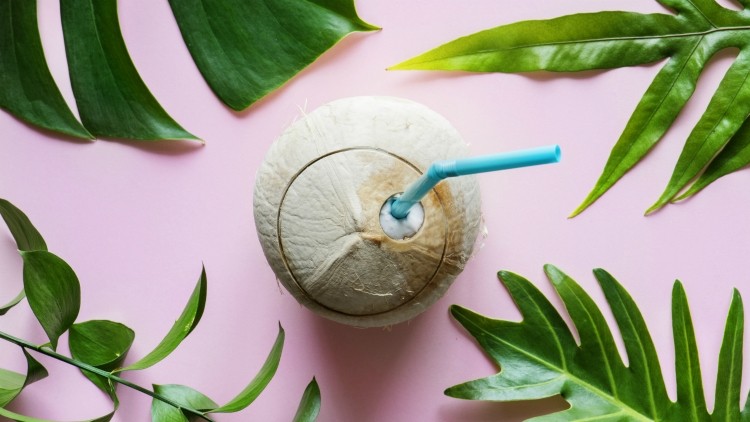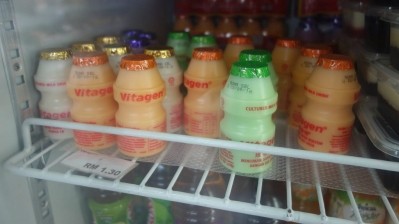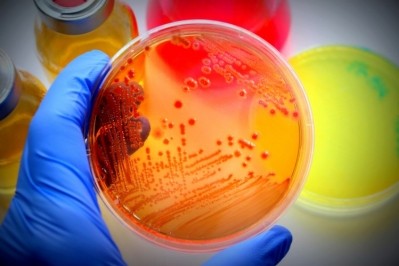Indian and Korean researchers develop functional probiotic beverage from fermented coconut water

Coconut water has a unique combination of sugars, minerals, vitamins, enzymes and hormones, and is widely consumed globally.
Fermenting coconut water with probiotics is said to be able to facilitate the development of an enhanced functional beverage that possesses probiotic benefits.
Fruits of fermentation
Based on this, researchers at Periyar Maniammai University, Seoul National University and Jawaharlal Nehru University aimed to produce a fermented coconut water beverage with the potential probiotic Lactobacillus casei L4.
They fermented coconut water with L. casei L4 for 48 hours at 35◦C, investigating its pH, organic acid production rate, antioxidant activity, levels of sugar, minerals and vitamin B12, and total viable bacteria counts after 24 and 48 hours.
Subsequently, they reported that the fermentation of coconut water with probiotic lactobacilli increased the cell viability count, with vitamin B12 production being the highest in the extracellular environment after 48 hours.
Additionally, the total phenolic content was markedly higher in the fermented coconut water at 48 hours than at other time points, and the fermented materials demonstrated the most prominent radical-scavenging activities at 48 hours.
Fermentation also did not change the levels of most minerals, except calcium, manganese, phosphorus and sodium.
Furthermore, the culture supernatant from the fermented coconut water was found to inhibit the growth of foodborne pathogens such as Bacillus cereus, Listeria monocytogenes, Staphylococcus aureus, and Salmonella typhi, though the degree of inhibition differed from one species to another.
The results indicated that the coconut water fermented with L. casei L4 could act as a novel functional beverage that contains both probiotics and electrolytes, and may be a suitable vehicle for preparing a wider range of novel functional products.
What do people think?
In terms of taste, the addition of honey and artificial coconut flavour to the fermented coconut water resulted in the end product tasting better, according to a sensory evaluation test.
The researchers recruited 20 survey subjects to help them evaluate the palatability of the fermented coconut water (recipe A), fermented coconut water with 15% honey (recipe B), and fermented coconut water with 15% honey and artificial coconut flavour (recipe C).
They observed no significant differences in colour or appearance among the samples, but the survey subjects generally preferred recipe C over the other recipes.
This was most likely because of the decreased acidity and increased sweetness and aroma of the beverage following the addition of honey and coconut flavour.
The researchers also suggested that similar fermented beverages could be "supplemented with fruit ingredients or herbs to improve their appeal to consumers".
Future indications for fermentation
They concluded: "Lactobacillus casei L4, a strain shown to have potential probiotic activities, was demonstrated here to be useful in producing a fermented CW beverage.
"Following the 48-hour fermentation with L. casei L4, we determined that the fermented beverage contains essential minerals, vitamin B12, antioxidants, and has antimicrobial activity.
"Furthermore, even after 28-day storage at 4◦C, (the) fermented broth retained the desired L. casei L4 levels, which are in accordance with the daily recommended probiotic dose. The fermented CW supplemented with 15% honey and artificial coconut flavour was shown to have the highest acceptance rate by the panellists.
"Further investigations are required for the development of inexpensive L. casei L4-fermented functional beverages with various health benefits."
Source: Frontiers in Microbiology
https://doi.org/10.3389/fmicb.2018.01976
"Use of a Potential Probiotic, Lactobacillus casei L4, in the Preparation of Fermented Coconut Water Beverage"
Authors: Sib S. Giri, et al.














